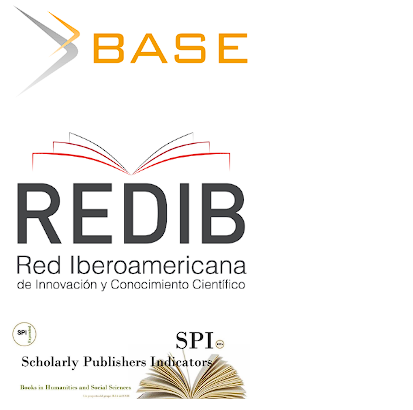The intuition time of the divisible continuum constituted in a unit of all the experiences of possible perception of eternity: time
Keywords:
time, eternity, experiences of perception, divisible, and temporary.Synopsis
The present work aims to analyze the arguments that support the various conceptions of time that are enunciated here, establishing a critical judgment of them, from the various approaches, resulting from the theoretical core of philosophy as a conception of the world, taking the interpretation from your analysis. The conceptions of time that are enunciated in relation to human becoming, through a hermeneutical analysis as a rescue of the elements of the subject, over those facts external to him, the interpretive-comprehensive paradigm addresses the expression of the research approach, justifying itself in the notions that cause more concern to human curiosity, “time”, because it is talking about the human being and its interpretation guidelines, immersed in culture, the analysis that emerges from its own nature, vision of the divine up to the comprehensive rational , where it emerges from eternity, is what always exists in constant change, it is divisible, therefore. time is generated from movement, so one of its parts comes after another, counting the before and after of the movement, generating the action of time through the coordinate system through uniform translation; then natural phenomena take place according to the propositions of the principle of relativity, property of the place, the movement is the same sum of the totality of the movements that must be understood from eternity as a starting point, the temporalization is manifested in the temporalization of the constitution of the entity, where the temporal interpretation constitutes its being, interpreting the possibility of time, temporality constitutes the sense of being, because being there is not static, but being is an understanding of being, the understanding of being, because it is that Dasein understands how to be, understands it from time. Time is the product of intuition, it is a subjective condition that remains when an abstraction is made, that is, without a real object it would be real as a determination inherent in things themselves, preceding objects as a condition of the representation of time as generated internal intuition from a binding of contradictory predicates.
References
Azcárate, P. (1871). Obras completas de Platón. Edición de Patricio de Azcárate.
Aristóteles (1995). Libro IV de la física. Traducción y notas, Guillermo R. Gredos.
De Aquino, S, T. (1989). La suma teológica. Biblioteca de autores cristianos.
De Hipona, S. A. (1979). Confesiones Edición critca y anotada por el Padre Angel Custodio Vega. Biblioteca de autores cristianos.
Einstein A. (1998) Sobre la teoría de la relatividad especial y general. Atalaya.
Gutiérrez, R. (2001). Historia de las doctrinas filosóficas. Esfinge.
Habermas, J. (2015). Mundo de la vida, política y religión. Trotta.
Heidegger, M. (1924, 25 de julio). El concepto de tiempo [Conferencia] Presentada en La Sociedad Teológica de Marburgo. http://www.insumisos.com/M4T3R14L/BD/Heidegger-Martin/El%20concepto%20de%20Tiempo.PDF
Heidegger, M. (1927). Ser y tiempo. Titivillus.
Kant, I. (1928). Crítica de la razón pura. Luarna Ediciones.
Newton I. (2004). Principios matemáticos de la filosofía natural., Alianza, Rada, Eloy (Trad.). Editor digital, casc.
Platón (2000). Diálogos III. Fedón, Banquete, Fedro. Gredos.
Sánchez, F. (2001). El método hermenéutico aplicado a un nuevo Canon: hacia la autorización de la producción escrita de los estudiantes de inglés. Cauce: Revista Internacional de Filología, Comunicación y sus Didácticas, (24), 295-324. https://dialnet.unirioja.es/servlet/articulo?codigo=625295

Downloads
Published
License

This work is licensed under a Creative Commons Attribution-NonCommercial 4.0 International License.


